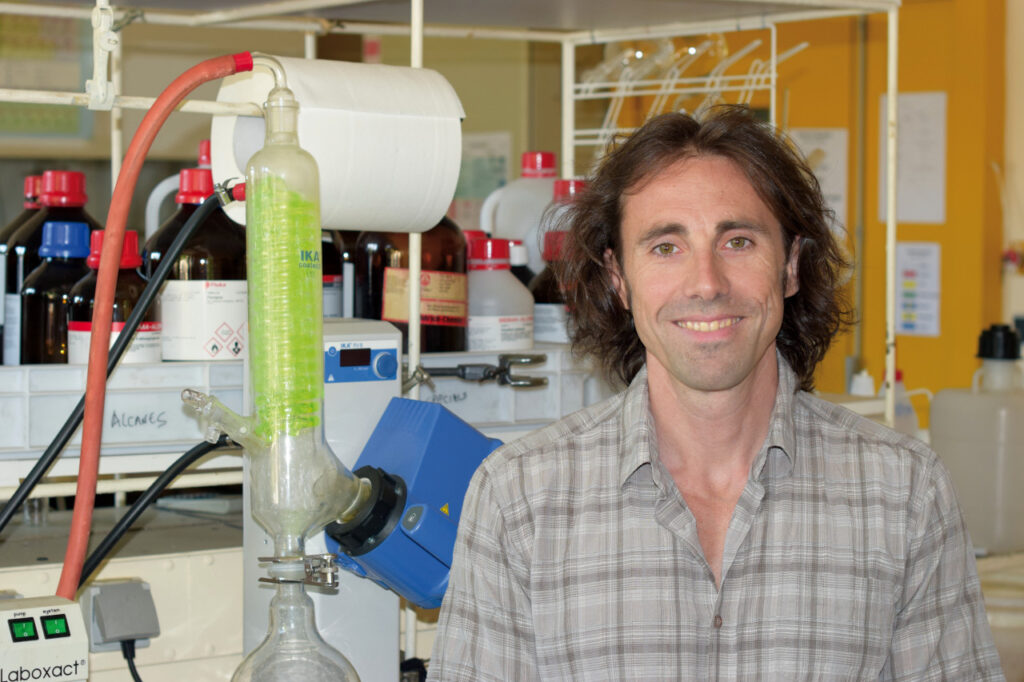[LUM#1] The wood used to make plastic
Everyone is searching, but to date they are the only ones to have found a natural, non-toxic alternative to replace bisphenol A. Thanks to the work of chemists at the Charles Gerhardt Institute, plastic is fantastic.

It was everywhere: in food cans, soda cans, paints, baby bottles. And yet, its impact on health is well established: even in very small doses, it disrupts our hormones. Bisphenol A has been banned in food packaging since January1, 2015. The problem is that no suitable replacement has been found. In the meantime, manufacturers are using two substitutes, bisphenol F and bisphenol S, which are close cousins. So close, in fact, that they too are suspected of being harmful to health.
A unique alternative made in Montpellier
"The only solution is to find a compound that has the same properties as bisphenol A—impact, heat, and chemical resistance—but is not toxic," explains Sylvain Caillol, a researcher at the Charles Gerhardt Institute. This challenge has mobilized researchers around the world, and Sylvain Caillol began working on it in 2008. "I worked in the chemical industry for 10 years, so I knew that bisphenol A was classified as a toxic compound and that sooner or later it would be banned."
When he joined ICGM, the pioneering chemist quickly launched research to find a viable alternative. The goal was to replace bisphenol with a non-hazardous, bio-based compound. "We knew that bisphenol A's interesting properties came from its benzene ring. So we searched nature for molecules that had the same benzene ring." And the researchers discovered the ideal candidate: vanillin.
Natural and eco-friendly
This molecule, which comes from wood lignin, has exactly the same properties as bisphenol A, without any of its drawbacks. "Vanillin has been used for a very long time in the food industry to flavor yogurt, among other things. It is highly biodegradable in the human body and has no effect on health," the chemist points out. Another advantage is that vanillin is an environmentally friendly alternative. "It is derived from a renewable material, and its production has no environmental impact in terms of greenhouse gas emissions. Furthermore, it is a resource that can be exploited locally," explains Sylvain Caillol.
These arguments have struck a chord with manufacturers: several companies have expressed interest. After successfully testing vanillin, they are ready to take the plunge into large-scale production. Production could begin imminently, "within a few years if all goes well."
Listen:
Interview with Sylvain Caillol in A l’UM la science: A new recyclable material made at UM
Find UM podcasts now available on your favorite platform (Spotify, Deezer, Apple Podcasts, Amazon Music, etc.).